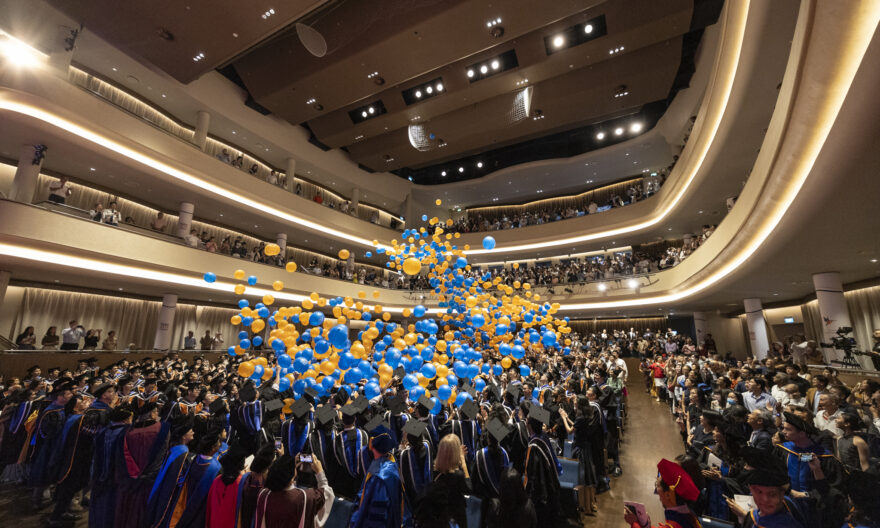Promoting pluralism and combating racial intolerance through active conversations
Recent global events have shown that racial injustices are still taking place around the world, and much needs to be done to rectify them. To this end, the Yale-NUS College community is emphasising its longstanding commitment to promoting pluralism and actively combating racial discrimination through a series of carefully curated initiatives. The Diversity and Inclusion (D & IC) Committee, co-chaired by Professor of Science (Environmental Studies and Geophysics) Brian McAdoo and Assistant Professor of Humanities (Philosophy) Robin Zheng, is a big driving force in this aspect.
Established in 2017, the D & IC Committee is a campus-wide group comprising faculty, staff and student representatives who champion and promote diversity and cultural inclusivity among the College community. The committee, with support from the Dean of Faculty, Rectors, and the Office of Engagement, has organised a series of talks, discussions and film screenings, amongst others, that allows students to engage in conversations surrounding topics of racism and diversity over the course of the academic year.
“This year, we are considering ways to make diversity and inclusion initiatives — which have been under way since the inception of the College — more central, visible, and integrated into all areas of academic life. This includes developing recommendations around a classroom ethos statement, which will express community values and expectations for respectful and inclusive dialogue; more training and scaffolding for faculty with respect to inclusive pedagogy, hiring, and mentoring; discipline-specific action items for each major; and preparations for a large-scale College-wide campus climate survey,” Asst Prof Zheng said.
On 27 July, the committee launched the series with a college-wide discussion on the documentary 13th by American filmmaker Ava DuVernay. The documentary explores the history of racial inequality in the United States, particularly the racial legislation that led to the disproportionate number of incarcerated African-Americans and the monetisation of the prison-industrial complex.
Following this, on 1 September, Saga Rector Khoo Hoon Eng organised a panel discussion – Race: No Longer Out-of-Bounds? – that explored the nuances of conversations surrounding race in Singapore.
The panellists comprised three Singaporean individuals active in various efforts that promote inter-ethnic and inter-faith understanding – volunteer facilitator in “Explorations into Ethnicity and Faith” community programmes, Dr G S Kannan; adjunct senior fellow at University Scholars Programme, Dr Lai Ah-Eng; and founding board member of Centre for Interfaith Understanding, and co-editor of Budi Kritik, Mr Mohamed Imran Mohamed Taib. The discussion was moderated by Yale-NUS College student, Muhammad Faris Bin Joraimi (Class of 2021). Panellists Dr Kannan, Dr Lai and Mr Imran (pictured from left to right). Images provided by Dr Kannan, Dr Lai and Mr Imran.
Panellists Dr Kannan, Dr Lai and Mr Imran (pictured from left to right). Images provided by Dr Kannan, Dr Lai and Mr Imran.
During the panel discussion, Dr Kannan offered personal anecdotes to illustrate how colonial constructs of race continue to operate in contemporary society. The task of calling out racism, he says, is often more challenging when it takes on more problematic and insidious forms, like in casual or internalised racism. To combat this, Dr Kannan emphasised the need to create safe spaces in families for difficult conversations, and to strengthen skills that allow us to be more empathetic and assertive when talking about race.
Having spent much of her work life researching ethnic relations, Dr Lai shared about her research on multiculturalism and its implications in public policy, schools, housing and immigration. She also explained the dominance of race on a broad range of topics, from the questionable necessity of ethnic indicators in surveys to competing claims on the origins of food. She argued for a lens that recognises the complex intersections of race and class, amongst other dimensions, instead of mainly race.
In his sharing, Mr Imran shared a socio-historical overview of racism and its presence in the form of segregationist societies and race politics in the time leading to Singapore’s independence. He emphasised the importance of avoiding a reductionist view of racism such an approach, he argues, would lead to a ‘snowballing effect’ where one attempts to achieve racial equality without interrogating the very idea of racialisation embedded in institutions.
Rector Khoo shared that conversations from the panel discussion are important as they help us acknowledge that both subtle and overt racial discrimination exists and creates real problems for people. She elaborated, “Talking about race can be difficult and uncomfortable, so it is important to have a framework to facilitate such discussions. By having clearer foundations, people can more likely respond non-defensively and reflect (as shared by all three panellists) upon how historical, personal and social identities influence our interactions.”
“Future events in the series will, hopefully, help unpack the nuances related to the intersectionality of race and other social structures and their impact on society in Singapore and the region. That is the only way sustained change can happen, not just at the individual level but also to guide policymakers in shaping their policies to prevent discrimination and promote equality in the general population,” added Rector Khoo.





